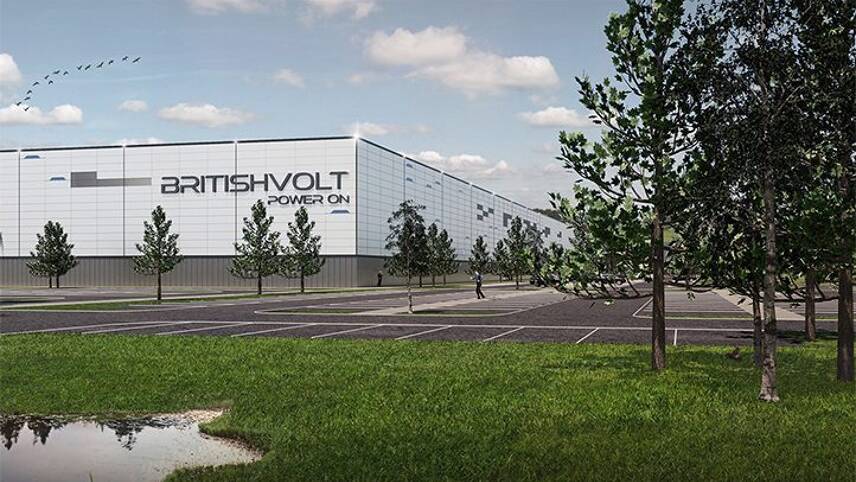Register for free and continue reading
Join our growing army of changemakers and get unlimited access to our premium content

Image: BritishVolt
Britishvolt, a UK battery company, has confirmed that it received an in-principle offer of government funding of around £100m through the Automotive Transformation Fund (ATF) for its planned Gigafactory.
The company gained planning permission in July and began work onsite shortly afterwards. It is expected to begin operations in 2023, with a 10GWh phase, and have two more phases that could total 30GWh of capacity added through to 2027.
It is expected that the factory will produce enough batteries to support more than 300,000 EVs annually and the Government claims that the project will create 3,000 direct jobs in Blyth and another 5,000 across the supply chain.
Prime Minister Boris Johnson, said: “Britishvolt’s plan to build a new Gigafactory in Northumberland is a strong testament to the skilled workers of the North East and the UK’s place at the helm of the global green industrial revolution.
“Backed by government and private sector investment, this new battery factory will boost the production of electric vehicles in the UK, whilst levelling up opportunity and bringing thousands of new highly-skilled jobs to communities in our industrial heartlands.”
The UK has lofty aspirations when it comes to Gigafactories, as it attempts to create a world-leading sector for battery development.
Already, Nissan has unveiled plans to transform its Sunderland plant into an EV hub featuring a 9GWh Gigafactory. Coventry Airport and Coventry City Council have also filed a planning application for a Gigafactory on the Airport’s estate. Tesla is also exploring the possibility of a UK site.
The Government’s Advanced Propulsion Centre estimated that a capacity of 90Gwh of battery production will be required to support the current car industry, but the UK’s current battery pipeline is around 2GWh.
If the UK is to meet its 2030 target of ending new petrol and diesel vehicle sales, the national Gigafactory stock will need to grow to as much as 50 million square feet of factories and warehouses.
A report from real estate services giant Savills takes into account the UK Government’s ban on new petrol and diesel car sales, which will come into force from 2030, and its vision to also end new petrol and diesel van, heavy goods vehicles, bus and coach sales by 2040. Both of these policy visions were announced this year, in the lead-up to COP26.
MPs on the Environmental Audit Committee (EAC) wrote to Ministers urging further funding for Gigafactories last year. The Committee’s letter outlines how other governments are typically supporting Gigafactories at a rate of £750m per plant, while the UK has pledged just £500m to the sector collectively, through the Automotive Transformation Fund. This is despite an ambition for the UK to host seven Gigafactories by 2027.
Matt Mace


A couple of mysteries here.
1. Has the date for banning petrol and diesel sales in the UK been changed from 2030 to 2040? I must have missed that!
2. Where will Britishvolt get its materials (lithium, etc.) from? I’ve asked them but got no reply so far. Does anybody know? (It won’t be Cornwall for a few years yet.)